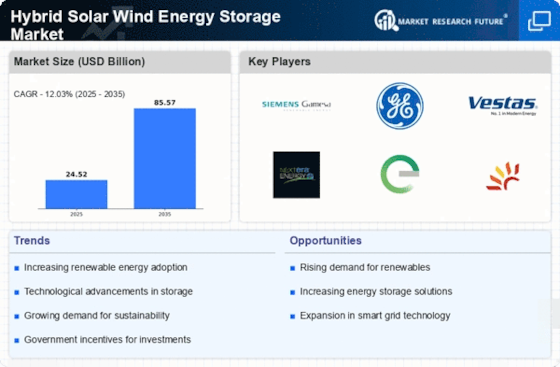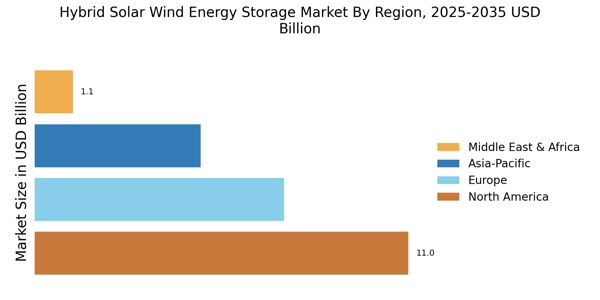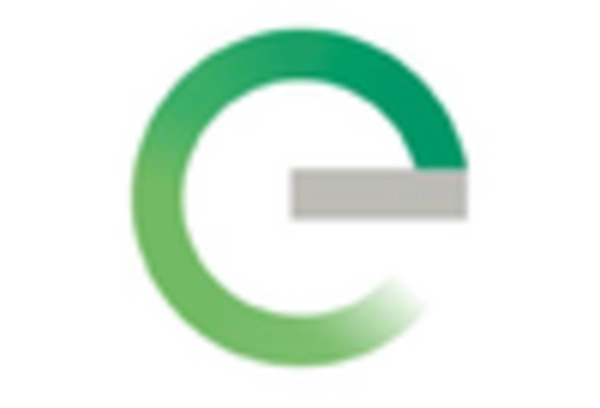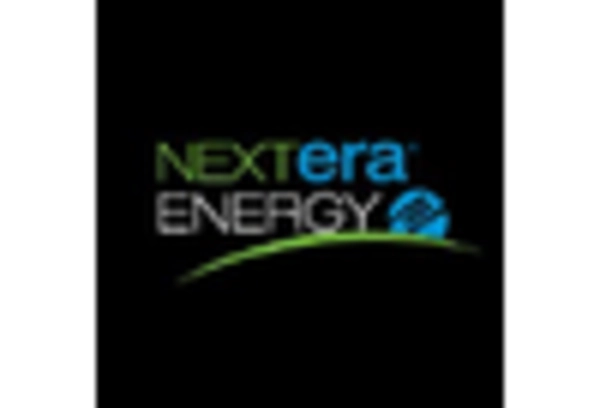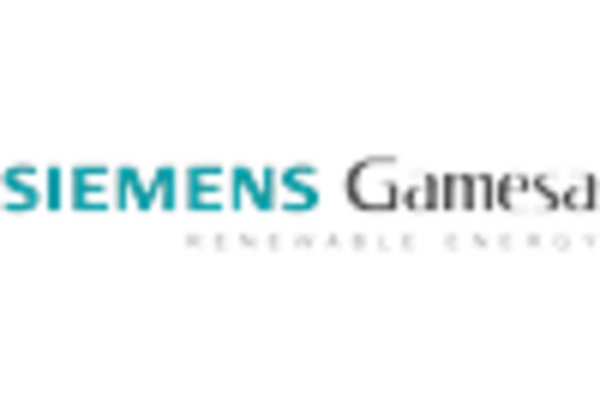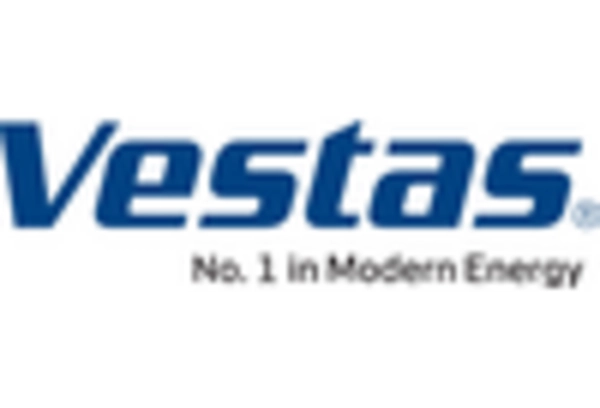Energy Independence
The quest for energy independence is a significant driver for the Hybrid Solar Wind Energy Storage Market. Many nations are striving to reduce their dependence on imported fossil fuels, which can be subject to volatile prices and geopolitical tensions. By investing in hybrid renewable energy systems, countries can enhance their energy security and stability. The integration of solar and wind energy allows for a more resilient energy infrastructure, capable of meeting local demands without relying on external sources. This trend is particularly evident in regions with abundant renewable resources. The Hybrid Solar Wind Energy Storage Market is thus likely to see increased investments as nations prioritize self-sufficiency in energy production, fostering a more sustainable and secure energy future.
Rising Energy Demand
The increasing The Hybrid Solar Wind Energy Storage Industry. As populations grow and economies expand, the need for reliable and sustainable energy sources intensifies. According to recent data, energy consumption is projected to rise by approximately 30% by 2040. This surge necessitates innovative solutions that can efficiently harness renewable resources. Hybrid systems, combining solar and wind energy, offer a promising approach to meet this demand. They provide a more stable energy supply, reducing reliance on fossil fuels. The Hybrid Solar Wind Energy Storage Market is thus positioned to play a crucial role in addressing this escalating energy requirement, potentially leading to significant investments in hybrid technologies.
Environmental Concerns
Growing environmental concerns are increasingly influencing the Hybrid Solar Wind Energy Storage Market. As awareness of climate change and its impacts rises, there is a collective push towards cleaner energy solutions. The transition from fossil fuels to renewable energy sources is seen as essential in mitigating environmental degradation. The Hybrid Solar Wind Energy Storage Market offers a viable solution by combining two renewable sources, thereby maximizing energy output while minimizing ecological footprints. Research indicates that hybrid systems can reduce greenhouse gas emissions significantly compared to traditional energy sources. This alignment with environmental goals is likely to drive consumer and corporate interest in hybrid energy solutions, further propelling market growth.
Technological Advancements
Technological advancements in energy storage solutions are significantly influencing the Hybrid Solar Wind Energy Storage Market. Innovations in battery technologies, such as lithium-ion and flow batteries, enhance the efficiency and capacity of energy storage systems. These advancements allow for better integration of solar and wind energy, addressing intermittency issues associated with renewable sources. The market for energy storage is expected to grow substantially, with estimates suggesting a compound annual growth rate of over 20% in the coming years. As these technologies evolve, they enable more effective energy management and distribution, making hybrid systems increasingly attractive to consumers and businesses alike. The Hybrid Solar Wind Energy Storage Market stands to benefit from these developments, as they facilitate the transition to a more sustainable energy landscape.
Government Incentives and Policies
Government incentives and supportive policies are pivotal in driving the Hybrid Solar Wind Energy Storage Market. Many countries are implementing favorable regulations and financial incentives to promote renewable energy adoption. For instance, tax credits, grants, and subsidies for renewable energy projects encourage investments in hybrid systems. Recent policy frameworks indicate a strong commitment to reducing carbon emissions and enhancing energy security. The International Energy Agency reports that renewable energy capacity is expected to double by 2030, largely due to such supportive measures. This regulatory environment fosters growth in the Hybrid Solar Wind Energy Storage Market, as stakeholders seek to capitalize on these opportunities while contributing to national and international sustainability goals.


